Spelling improvement Normal Phonics Worksheets for Ages 4-8
6 filtered results
-
From - To
Discover our engaging Spelling Improvement Normal Phonics Worksheets, designed specifically for children ages 4-8. Our worksheets focus on enhancing spelling skills through interactive phonics exercises that build a strong foundation in language. Each activity is carefully crafted to support young learners in recognizing letter sounds, decoding words, and improving their overall literacy. With colorful illustrations and fun themes, these worksheets make learning enjoyable, ensuring that children stay motivated and excited about mastering their spelling. Explore this invaluable resource to help your child develop essential skills and boost their confidence in reading and writing. Get started today and watch them thrive!
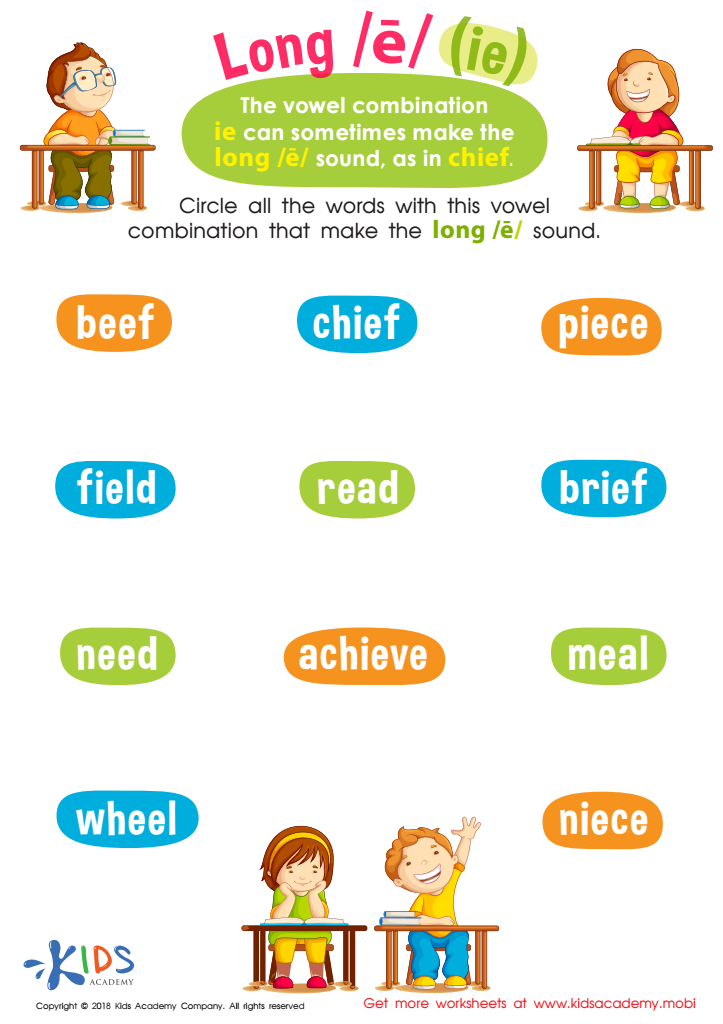

Reading: Long E and IE Worksheet
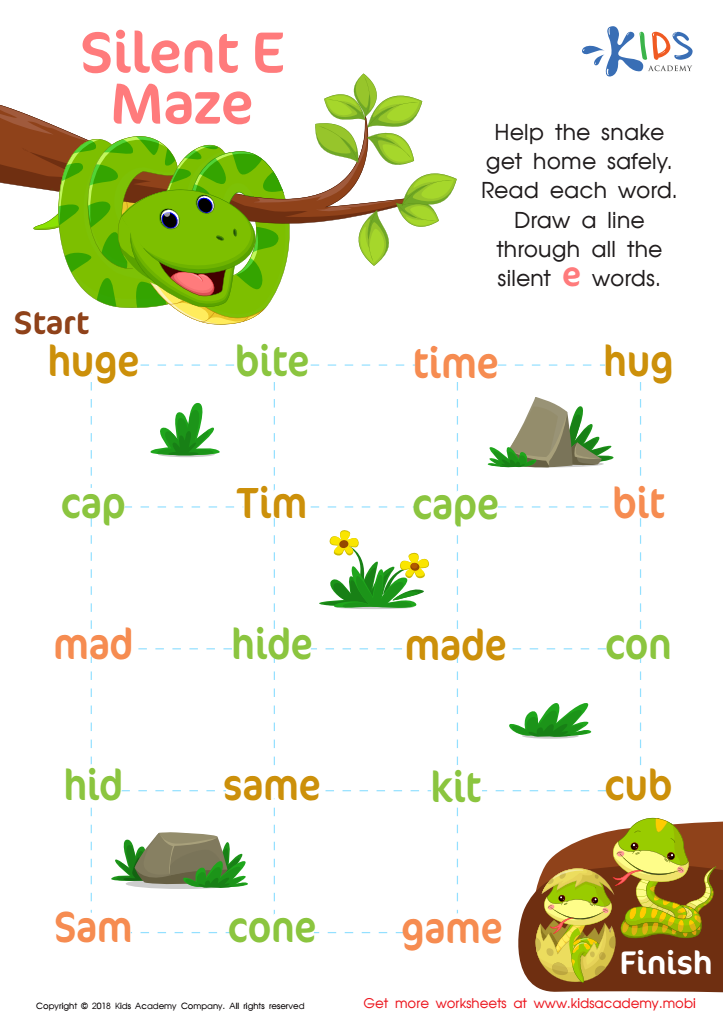

Silent E Maze Worksheet
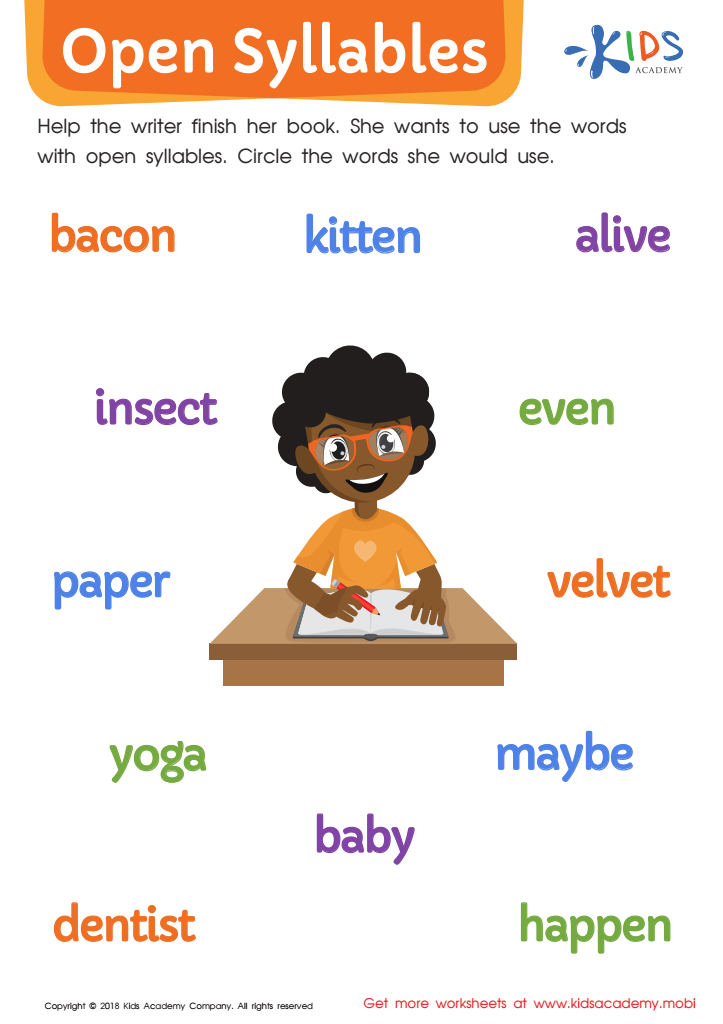

Open Syllables Worksheet


Twin Onset Worksheet
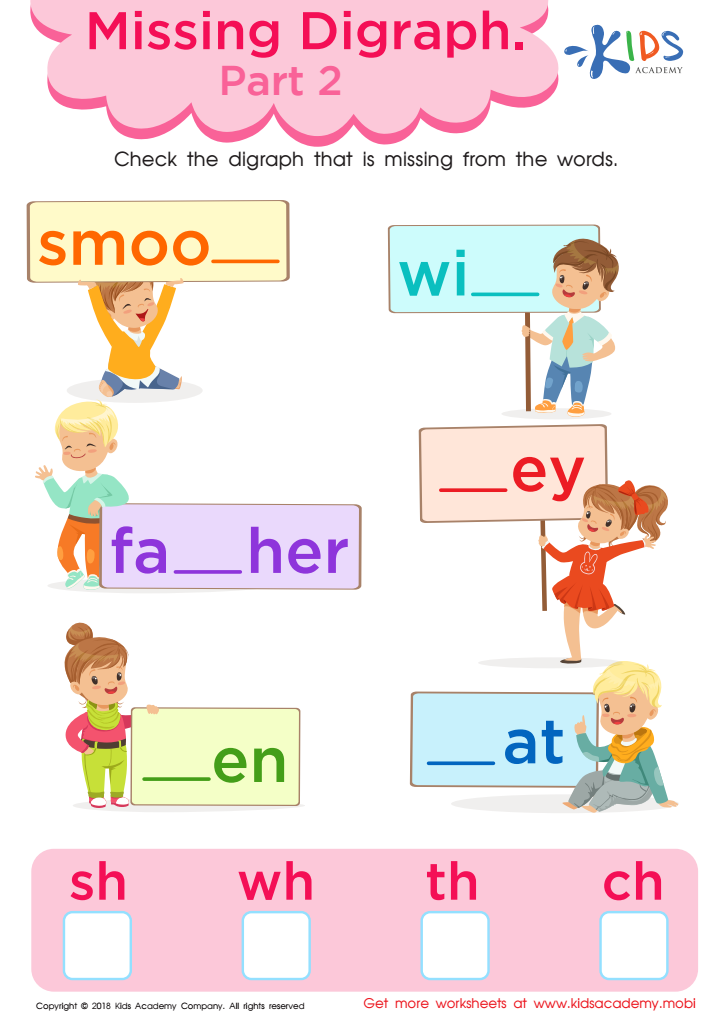

Missing Digraph: Part 2 Worksheet
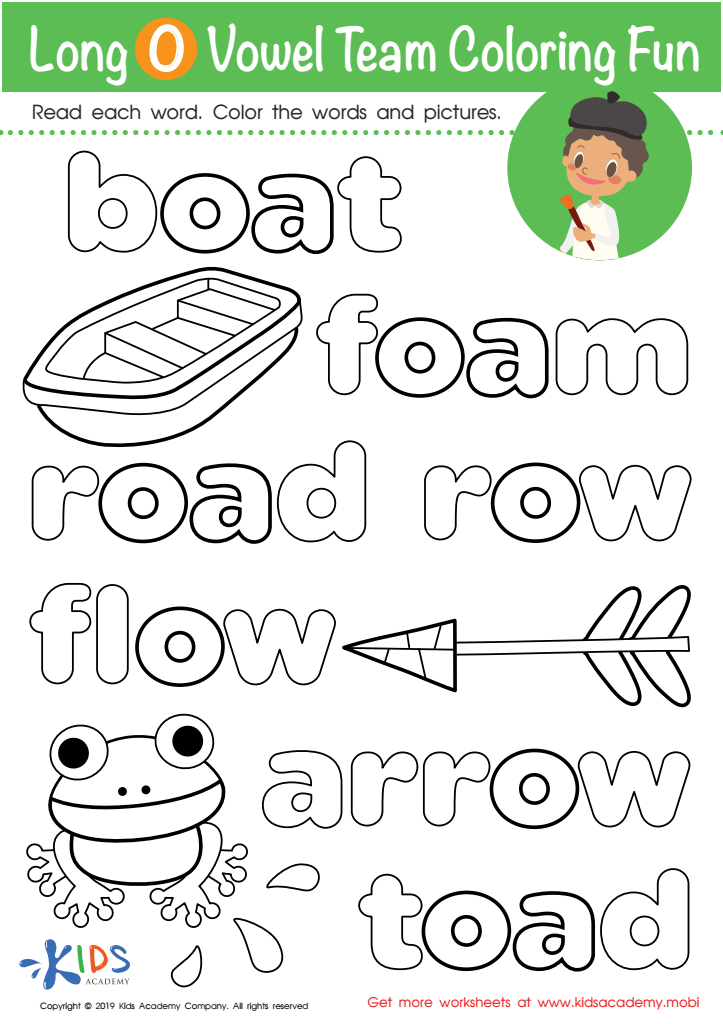

Long O Vowel Team Coloring Worksheet
Spelling improvement through Normal Phonics for children ages 4-8 is crucial for several reasons. Firstly, this stage of development is pivotal for establishing foundational literacy skills. Early mastery of phonics enhances a child's ability to decode words, leading to improved reading fluency and comprehension. When children understand the relationship between sounds and letters, they build confidence in their reading abilities, making them more willing to tackle challenging texts.
Moreover, effective spelling skills are closely linked to writing proficiency. Children who are skilled at spelling can express their thoughts more clearly and creatively, which boosts overall communication skills. This age marks a significant period for language development; children learn to convey their ideas through writing, and solid spelling knowledge facilitates this process.
Additionally, successful spelling abilities can impact academic performance and self-esteem. As children become proficient spellers, they are less likely to struggle with assignments, fostering a positive attitude towards learning.
For parents and teachers, investing time in Normal Phonics not only engages children but also supports their holistic development. This investment lays the groundwork for lifelong literacy skills, preparing students for future academic success and effective communication in their daily lives. Engaging with spelling improvement is essential for fostering well-rounded, confident learners.

 Assign to My Students
Assign to My Students















